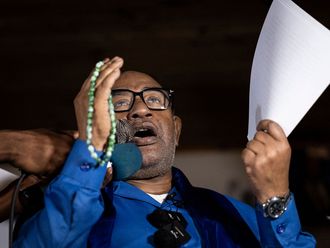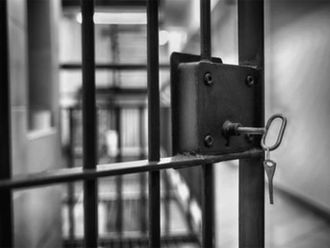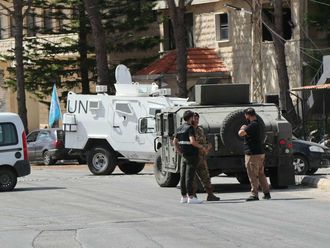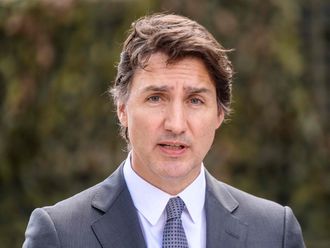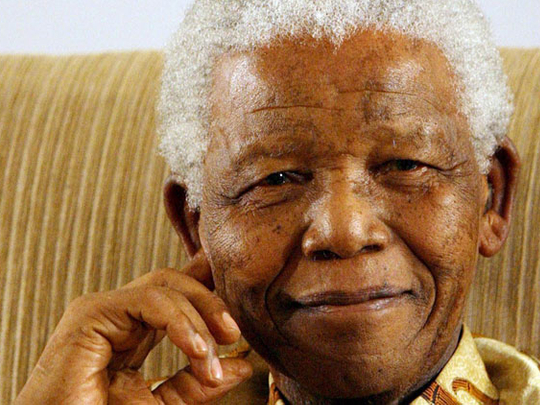
Johannesburg: Nelson Mandela agonised over the suffering caused to his family by his struggle against white rule in South Africa, according to an intimate portrait of the man revealing details from his personal letters and diaries for the first time.
Correspondence, personal notes and hours of recordings will be published on Tuesday in a book titled Conversations with Myself, which was compiled by the Nelson Mandela Foundation and includes a foreword from US President Barack Obama.
Much of the publication is based on an unpublished autobiography that would have been a sequel to his world-famous 1995 Long Walk to Freedom, including his musings on life as South Africa's first black president.
"I have often wondered whether a person is justified in neglecting his own family to fight for opportunities for others," Mandela says in the book. "Even, when at times, I am plagued with an uneasy conscience I have to acknowledge that my whole-hearted commitment to the liberation of our people gives meaning to life and yields for me a sense of national pride and real joy."
Letters from the young Mandela show a side of the Nobel Peace Prize winner now often obscured by the grandfather image of the reconciler, now 92, who won South Africa's first all-race elections in 1994.
As a young activist, he pushed the African National Congress to form an armed wing after years of devotion to non-violence as a guiding principle.
"The actual situation on the ground may justify the use of violence which even good men and women may find it difficult to avoid," he said.
"But even in such cases the use of force would be an exceptional measure whose primary aim is to create the necessary environment for peaceful solutions."
In diaries of his 1962 journey across Africa to round up support for the armed movement, he recounts learning to fire a gun in Ethiopia and studying Algeria's military tactics against the French. He was arrested shortly after his return to South Africa.
The book shies away from the most personal details of his life. It barely talks about his first wife Evelyn, although it does recount one violent argument where she tried to burn him with a hot poker.
"So she had put this thing in the coal and it was red hot and as we were arguing she then pulled this thing out, you know, in order to, what-you-call, burn my face. So I caught hold of her and twisted her arm, enough for me to take this thing out," he recalled.
But his many letters to Winnie Madikizela-Mandela during his second marriage, which lasted through his imprisonment, and to his children, showed the strain on his family caused by his political stance.
"I feel I have been soaked in gall, every part of me, my flesh, bloodstream, bone and soul, so bitter am I to be completely powerless to help you in the rough and fierce ordeals you are going through," he wrote to his wife in 1970.
He also remembers feeling extremely upset when the prison authorities refused to allow him to attend the funeral of Thembi, the elder of two sons from his first marriage, who died in a car crash at the age of 24 in 1969.
"When I was first advised of my son's death I was shaken from top to bottom," he said, adding that he had experienced a similar heartache when he lost a nine-month-old baby girl several years earlier.
Some of the entries are more mundane, with calendars chronicling his weight and blood pressure and the arrival of milk and new razors, which were luxuries during his time in prison.
His notes become less detailed after his release in 1990, as he led negotiations with the white apartheid government and then took office.
But he records his own failures, as when the ANC shot down his idea to lower the voting age from 18 to 14.
He also scribbled notes ahead of meetings with world leaders, and in an unexpected show of personality, jotted down the address of his current wife Graca Machel - on a notepad emblazoned with his name and a cartoon of Garfield the cat.
The book ends with a passage from his draft for a new autobiography, asking the world not to beatify him.
"One issue that deeply worried me in prison was the false image I unwittingly projected to the outside world; of being regarded as a saint," he wrote.” I never was one, even on the basis of the earthly definition of a saint as a sinner who keeps trying."
Quotes from Mandela's private letters and diaries
On equality:
"Our demand is for a non-racial society. We are fighting for a society where people will cease thinking in terms of colour. It's not a question of race; it's a question of ideas."
On the armed struggle:
"The actual situation on the ground may justify the use of violence, which even good men and women may find it difficult to avoid. But even in such cases the use of force would be an exceptional measure whose primary aim is to create the necessary environment for peaceful solutions."
On the risk of execution:
"The threat of death evoked no desire in me to play the role of martyr. I was ready to do so if I had to. But the anxiety to live always lingered."
On imprisonment:
"At least, if for nothing else, the cell gives you the opportunity to look daily into your entire conduct, to overcome the bad and develop whatever is good in you. Regular meditation, say about 15 minutes a day before you turn in, can be very fruitful in this regard."
On life after prison:
"When I return (from prison) I shall have forgotten almost everything about law and will have to do something else for a living, perhaps dig roads, clean drains or go down the coal pits with pick and shovel."
On reconciliation:
"I am now working with the same people who threw me into jail, persecuted my wife, hounded my children from one school to the other and I am one of those who was saying, 'Let us forget the past, and think of the present.'"
On women:
"I've been out of action for 16 years now and my views may be outdated. But I've never regarded women as in any way less competent than men."
On writing:
"A good pen can also remind us of the happiest moments in our lives, bring noble ideas into our dens, our blood and our souls. It can turn tragedy into hope and victory."
On religion:
"From experience, it's far better, darling, to keep religious beliefs to yourself. You may unconsciously offend a lot of people by trying to sell them ideas they regard as unscientific and pure fiction."
On violence before the 1994 elections:
"The struggle is our life, and even though the moment of victory may not be at hand, we can nevertheless make that struggle immensely enriching or absolutely disastrous. In my entire political career, few things (have) distressed me as to see our people killing one another as is now happening."
On receiving criticism:
"It is a grave error for any leader to be oversensitive in the face of criticism. A leader should encourage and welcome (a) free and unfettered exchange of views. But no one should ever question the honesty of another comrade, whether he or she is a leader or ordinary member."
On AIDS:
"AIDS is a major problem to be tackled by the entire world. To deal with it requires resources far beyond the capacity of one continent. No single country has the capacity to deal with it."
On his current wife, Graca Machel:
"I cannot describe my joy and happiness to receive the love and warmth of such a humble but gracious and brilliant lady."
On leadership:
"The leader's first task is to create a vision. His second is to create a following to help him implement the vision and to manage the process through effective teams."
On his election as president:
"My installation as the first democratically-elected president of the Republic of South Africa was imposed on me much against my advice."
On the risks of corruption:
"But history never stops to play tricks even with seasoned and world-famous freedom fighters. Frequently erstwhile revolutionaries have easily succumbed to greed, and the tendency to divert public resources for personal enrichment ultimately overwhelmed them."



